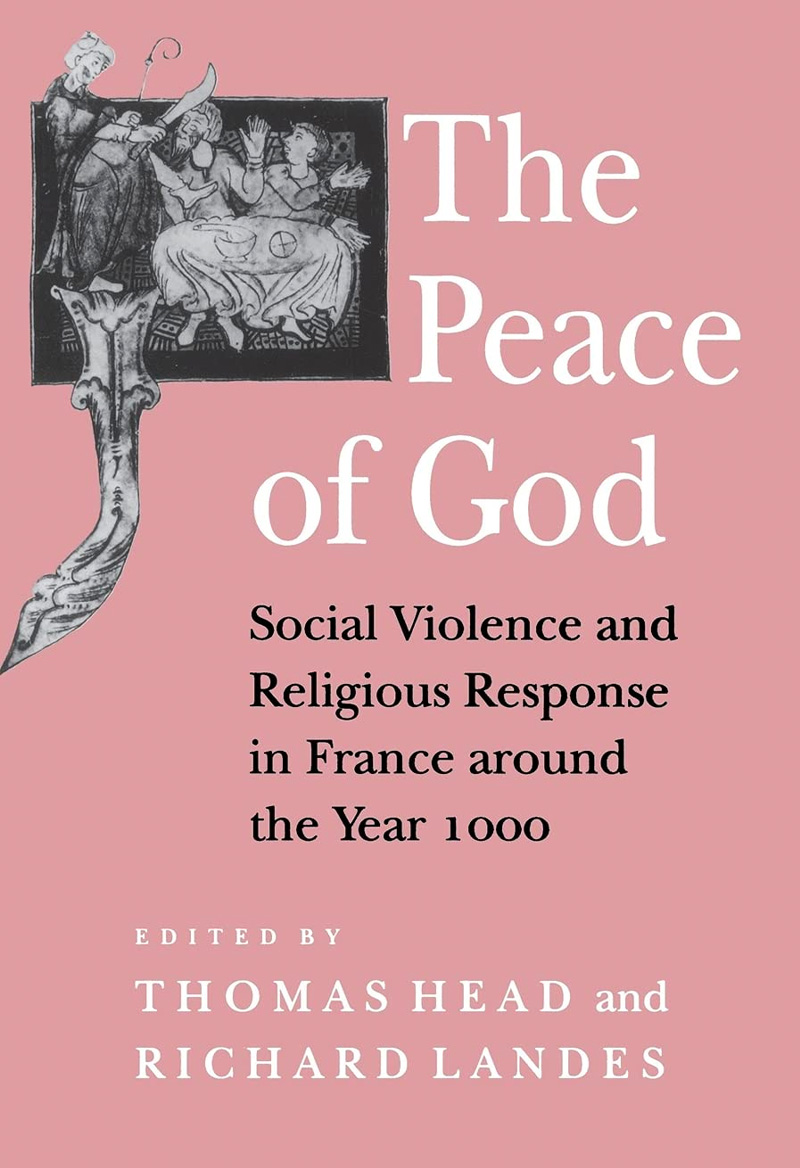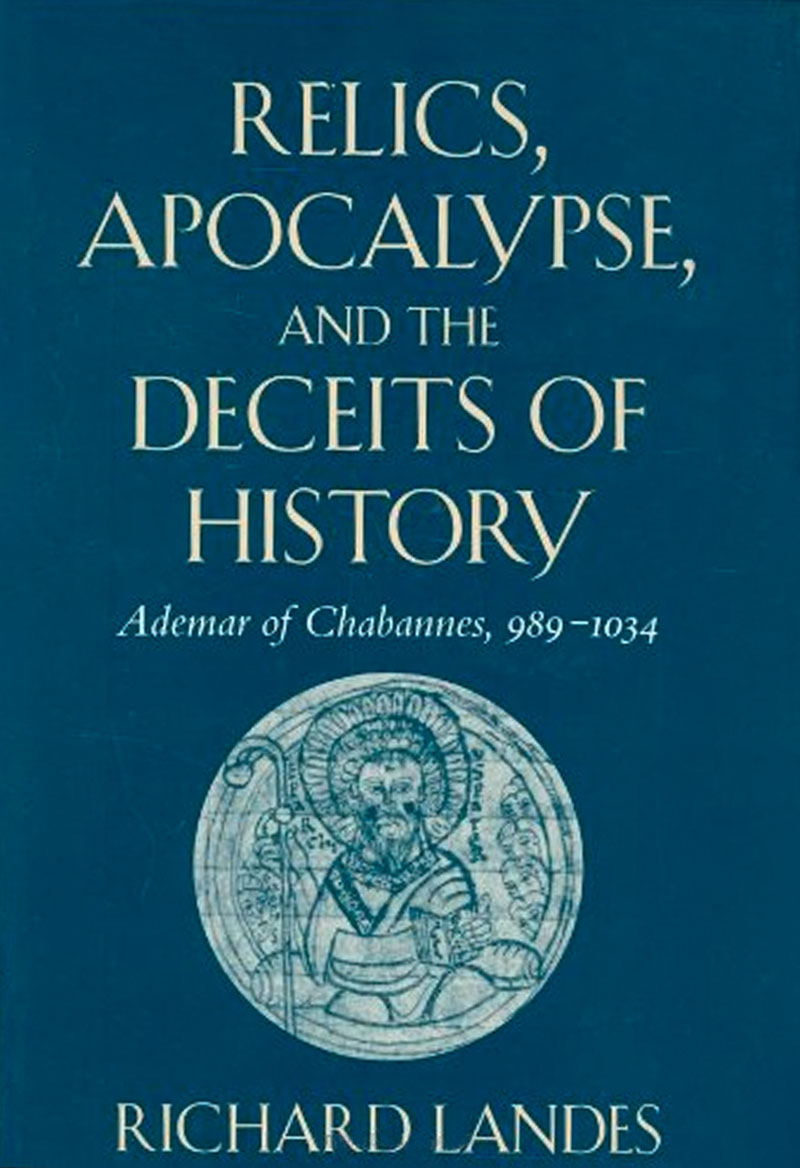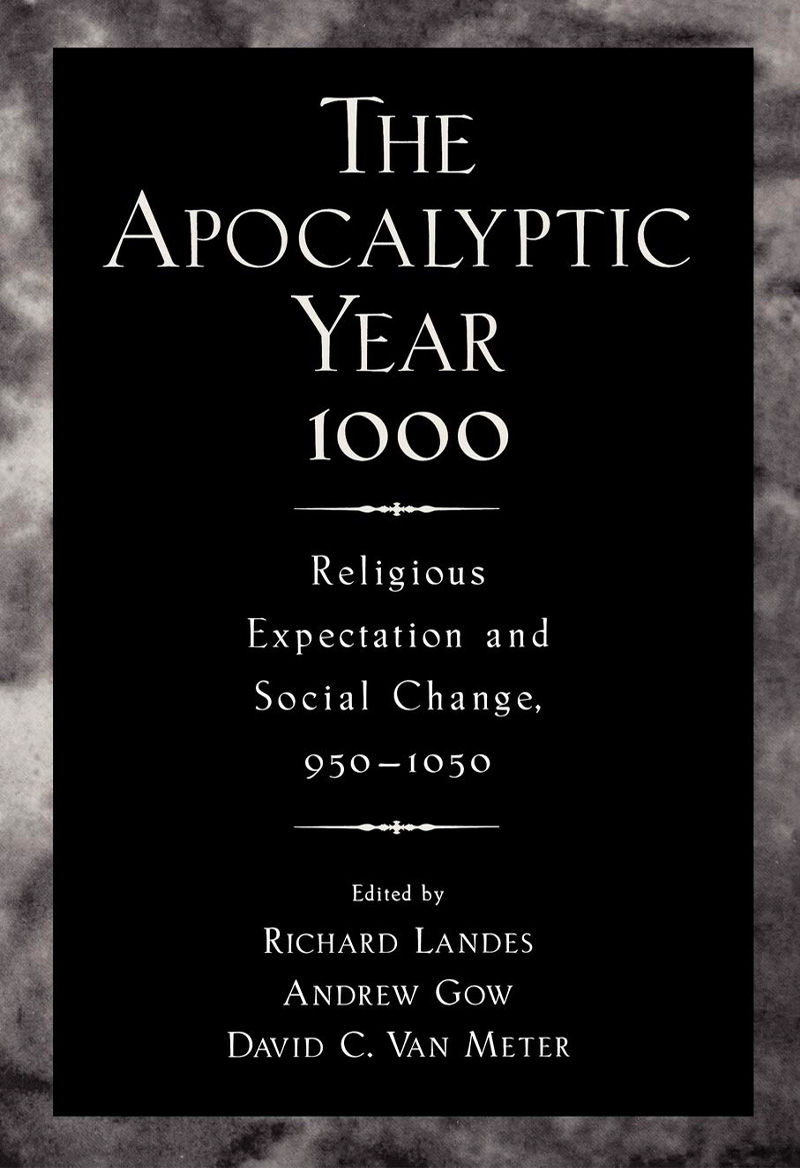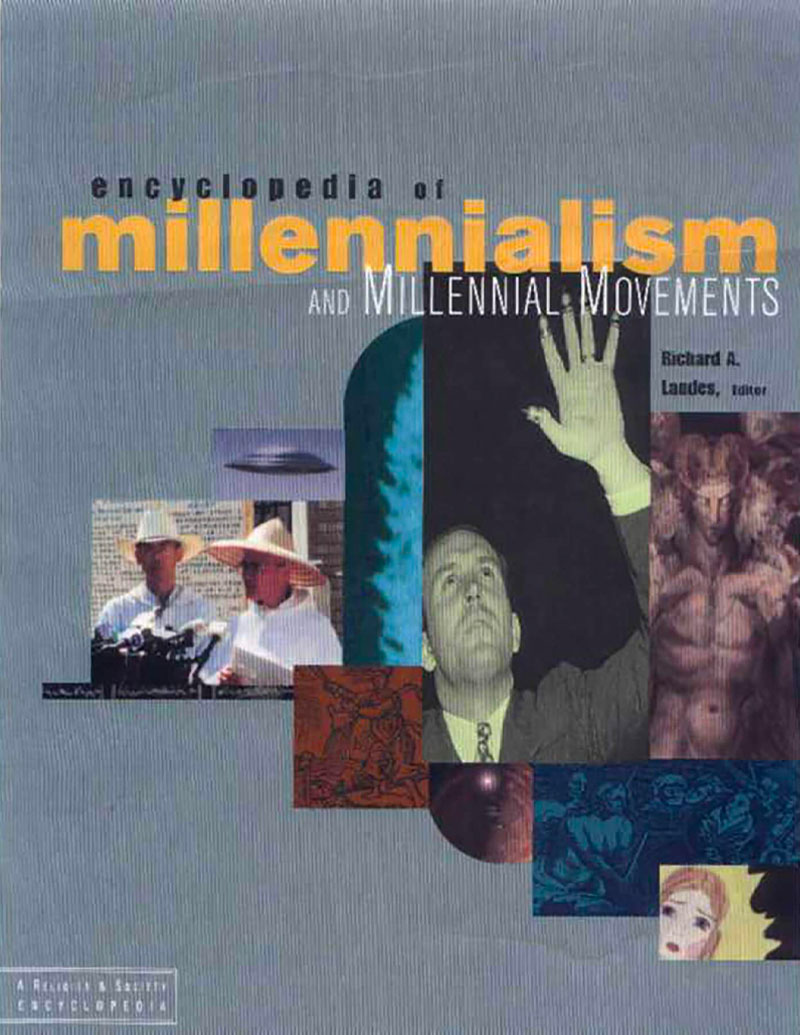Social Violence and Religious Response in France around the Year 1000
Ithaca: Cornell University Press, 1992
- Revisionist argument about the significance of millennialism throughout history
- Focuses on millennialism across many religious and supposedly secular groups, showing that the movement is not exclusive to Judaism and Christianity
- Chapters on Xhosa Cattle Slaying (1856-67), Cargo Cults, Pharaoh Akhenaten (1350 BCE), the Chinese Taiping (1850-64), UFOlogy, French Revolution, Marxism, Soviet Revolution, Nazism.
- Final Chapter on Global Jihad as an active, cataclysmic apocalyptic movement aiming at a hierarchical Millennium.
- Conclusion comparing Anthropogenic Global Warming with Global Jihad Warming as “empirically-based” apocalyptic prophecies for the 21st Century.
“Relics, Apocalypse, and the Deceits of History is an intelligent and imaginative study of an author who accounts for a large proportion of the surviving narrative sources for Aquitaine in the first third of the eleventh century and is consequently central to our understanding of important movements such as the Peace of God, pilgrimage, and the cult of saints. Ademar left a substantial corpus, much of it autograph. This provides the cornerstone of Landes's challenging methodology whereby he calibrates shifts in Ademar's literary identity--as copyist, historian, liturgist, and mythographer--against a detailed biographical reconstruction which is in turn interwoven with the religious, social, and political currents affecting the 'millennial generation'. Landes excels in applying skilled palaeographical, codicological, and textual analysis to wider issues...This is an ambitious, original, methodologically exciting, and closely argued work of great interest.”Marcus Bull, English Historical Review [UK]
“On August 3, 1029, Ademar of Chabannes suffered a humiliating defeat when his plans for a triumphal procession of the relics of St. Martial and the chanting of his new liturgy in Martial's honor turned into a fiasco. He spent the next five years writing forgeries and fictions about his contemporaries which have misled historians up to the 20th century. He left behind more than 1,000 folios of manuscripts. This account by Professor Landes of Boston University sheds new light on the cult of saints, apocalypticism, scriptoria and their manuscripts, and historiography.”Theology Digest
Bernard S. Bachrach, University of Minnesota“A brilliant work which synthesizes the immense technical skills Landes has acquired with his talent as an historian. Because Ademar left so many manuscripts in so many fields of endeavor and because he was so thoroughly a part of the major historical movements in Aquitaine during the first third of the eleventh century, Landes is able to break new ground in a methodological sense with regard to the writing of various aspects of the social and religious history of the French kingdom in pre-Crusade Europe. Particular emphasis here is given to popular religion, the peace movement, apocalyptic thought and social patterns. Relics, Apocalypse, and the Deceits of History, moreover, is at once an intellectual biography, a personal biography, and a social history. Thus, Ademar the man, Ademar the monk, Ademar the scholar, Ademar the Christian, and Ademar the public figure are all thoroughly integrated in Landes' remarkable study.”
Geoffrey Koziol, University of California at Berkeley“Landes convinced me without any qualms of the importance of his approach. He is absolutely right to stress the importance of Ademar's corpus, substantial portions of it autograph. It is not just that Ademar is an important source for our writing and history. As Landes says, the fact that Ademar wrote and revised so much allows us to see into the creative process of a single man who lived at a watershed. We can see into his mind. And because Ademar was tortured and flawed, we have, as Landes also points out in a wonderful phrase, 'the autograph record of a man going mad.' Uncommon enough for any period, this is a motherlode for the middle ages.”








